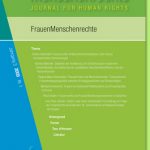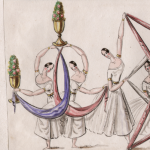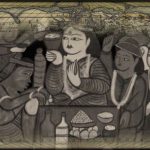 Zeitschrift für Menschenrechte (zfmr), Heft 1/2020 (Web)
Zeitschrift für Menschenrechte (zfmr), Heft 1/2020 (Web)
Einreichfrist: 30.04.2019
In den letzten Jahren konnten Bewegungen für die Rechte von LGBTIQ* bemerkenswerte Erfolge erringen, und das nicht nur im „globalen Norden“: Gleichgeschlechtliche sexuelle Beziehungen wurden entkriminalisiert; es wurden Möglichkeiten für gleichgeschlechtliche Paare geschaffen, ihre Beziehungen zu institutionalisieren, mancherorts bis hin zur Öffnung der Ehe; die Anerkennung einer vom bei der Geburt zugewiesenen Geschlecht abweichenden Geschlechtsidentität wird vielerorts nicht mehr von geschlechts-anpassenden Körpermodifikationen abhängig gemacht, manche Staaten gebieten, dass es bei der rechtlichen Kategorisierung des Geschlechts eine „dritte Option“ geben soll, und die Praxis der chirurgischen Zurichtung der Genitalien von inter-geschlechtlichen Kindern wird zunehmend als unzulässig angesehen, wenn sie auch erst in ganz wenigen Staaten vollends verboten ist.
Es gab aber auch Rückschläge, wie die Situation in Russland und in der Türkei, aber auch in Brasilien oder in den USA zeigt, wo für das Militär wieder ein „Transgender Ban“ eingeführt wurde.
Das Heft 1/2020 der zfmr widmet sich diesen Entwicklungen aus menschenrechtlichen Perspektiven: Wie wurden Erfolge errungen – über Initiativen der Gesetzgeber/innen oder vor Gericht? Welche Herausforderungen galt und gilt es zu überwinden? Welche Argumentationen wurden gepflogen – welche sind gescheitert und welche hatten Erfolg? Hat … weiterelesen (PDF).
Quelle: Female-l





![Cover der Schwerpunktausgabe der ZS Frauen*Solidarität via Website [Zum Vollbild anklicken]](https://salon21.univie.ac.at/wp-content/uploads/fsz145cover.jpg-150x150.jpg)